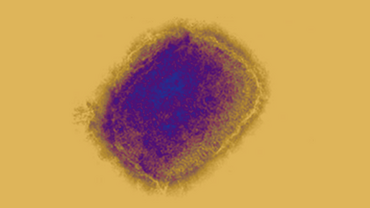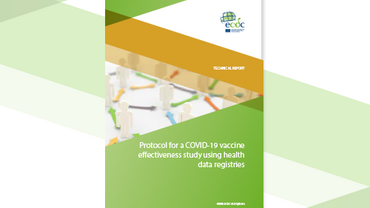ECDC highlights measures to mitigate possible increase in mpox cases during spring and summer
The report "Public health considerations for mpox in EU/EEA countries", released today by the European Centre for Disease Prevention and Control (ECDC), sets out a number of considerations for public health authorities in areas such as vaccination, surveillance, testing, contact tracing and risk communication.
Since 16 May 2022, and up until 4 April 2023, 21 170 cases of mpox (formerly known as monkeypox), including six deaths, have been reported by 29 countries within the European Union/European Economic Area (EU/EEA). Most cases have been detected in males (98.1%) between 18-40 years of age (64.6%), and primarily among men who have sex with men. The weekly number of mpox cases reported in the EU/EEA peaked in July 2022, and since then a steady declining trend has been observed, reaching a plateau with very low numbers since the end of December 2022.
Andrea Ammon, ECDC Director said:
“The number of mpox cases have greatly decreased since the peak in July last year. However, there is risk of an increase in the coming spring and summer season due to festivities and increased holiday travel. Early diagnosis, isolation, partner notification and contact tracing remain key for the effective control of this outbreak and should be supported by appropriate vaccination- and behaviour change strategies.”
Mpox vaccines can be used as post-exposure vaccination or as primary preventive (pre-exposure) vaccination for individuals at high risk of exposure during this outbreak. Vaccination programmes must be backed by thorough surveillance and contact tracing and accompanied by a strong information campaign and robust pharmacovigilance. National decisions on the best strategies and target groups suited for the local epidemiological context have been undertaken by Member States. Preliminary data indicates that as of 3 March 2023, more than 300 000 vaccine doses have been administered in 25 EU/EEA countries.
Testing should be made widely available to improve rapid access, particularly in clinical settings that serve men who have sex with men, as this is where the populations at highest risk are likely to access care.
Health promotion interventions, risk communication and community engagement are critical to ensure effective outreach and high vaccine acceptance and uptake among those most at risk of exposure as well as to reinforce testing, partner notification or contact tracing, isolation of cases and behaviour change.
Close collaboration with civil society and community-based organisations serving populations at risk is also key for the success of risk communication and community engagement efforts. This includes liaising with venue owners and organisers of Pride events. Clinicians should also be made aware of how to rapidly detect and report cases of mpox to public health authorities to enable timely and responsive public health interventions.





